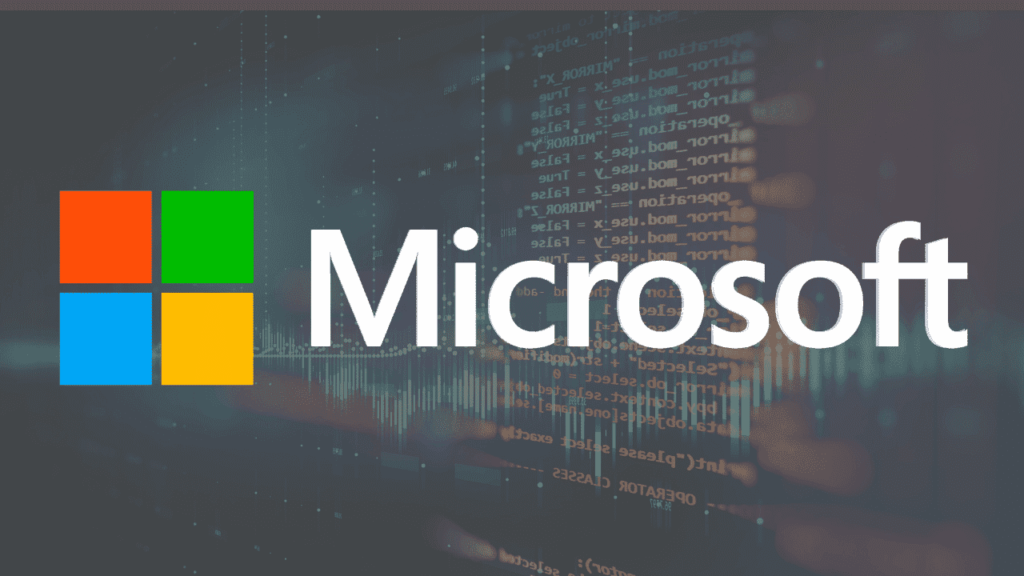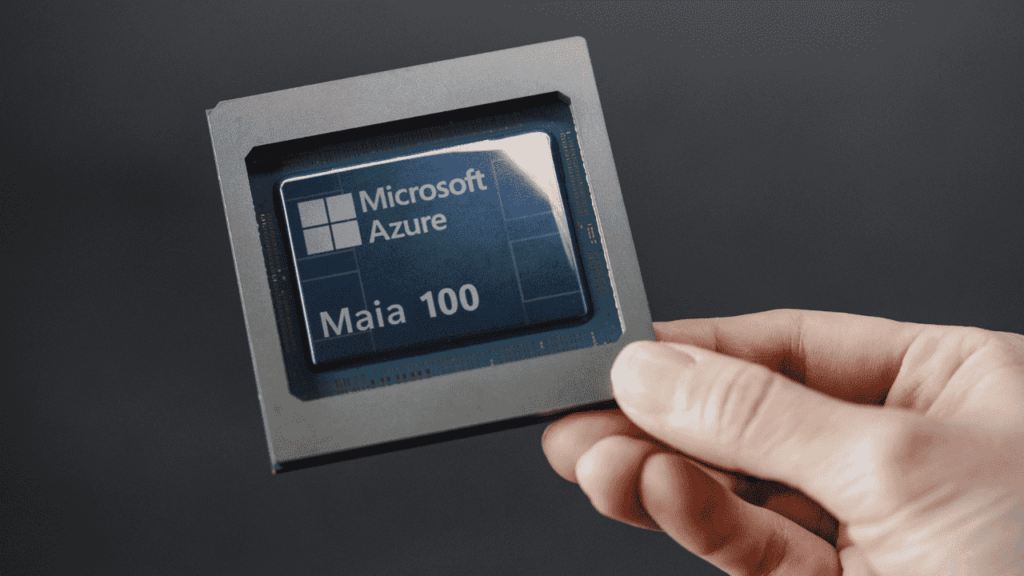
Microsoft AI chips are introduced in a groundbreaking move at the Ignite developer conference (the tech giant’s annual conference for developers and IT professionals) in Seattle. Microsoft has directed in a new era in artificial intelligence (AI) with the introduction of its custom-designed computing chips, Maia and Cobalt. This development marks a pivotal moment for Microsoft as it takes a significant leap forward in the competitive landscape of AI technologies.
The Motivation Behind Microsoft AI Chips
Microsoft’s foray into developing its own AI chips is a strategic response to the tough challenges posed by the high costs associated with delivering AI services. Traditionally, AI services have incurred expenses that can be up to ten times greater than those of conventional services like search engines. The company aims to tackle this cost disparity by bringing key AI technologies in-house, a move mirrored by other tech giants facing similar challenges.
Meet the Game-Changers: Maia and Cobalt
Maia: Powering the AI Revolution

At the heart of this transformation, is the Maia chip, specially designed to accelerate AI computing tasks. One of its primary applications lies in running large language models, a crucial component underpinning Microsoft’s Azure OpenAI service. This collaboration with OpenAI, the minds behind ChatGPT, has resulted in a chip optimized for efficiency and performance, tailored to the specific needs of AI workloads.
Maia not only fuels the ambitious Copilot service, catering to business software users and developers at $30 a month but also sets the stage for a more cost-effective and high-performance AI future. The chip’s optimization for foundational AI models is a key element of Microsoft’s strategy to streamline its diverse AI efforts, offering faster, lower-cost, and higher-quality solutions to its customers.
Cobalt: Microsoft’s Answer to Cloud Rivalry
Complementing Maia, Microsoft unveiled Cobalt, a central processing unit (CPU) designed to be an internal cost saver and a direct response to its chief cloud rival, Amazon Web Services (AWS). Developed with technology from Arm Holdings, Cobalt represents Microsoft’s commitment to competitiveness in terms of both performance and price-to-performance, directly challenging AWS’s Graviton series of in-house chips.
Cobalt’s versatility extends beyond internal use, as Microsoft envisions selling direct access to the chip. This move positions the tech giant to expand its influence in the broader cloud computing market, offering a robust alternative to the existing players.
Technical Insights of Microsoft AI Chips
Both Maia and Cobalt are manufactured using cutting-edge 5-nanometer technology from Taiwan Semiconductor Manufacturing Co (TSMC). This technological choice highlights Microsoft’s commitment to staying at the forefront of semiconductor advancements.
Notably, Maia’s integration with standard Ethernet network cabling signifies a departure from more expensive custom networking technology used in previous supercomputers built for OpenAI. This shift towards standardization aligns with Microsoft’s broader strategy, emphasizing efficiency and compatibility with existing technology ecosystems.
Strategic Collaborations and Competitive Dynamics

Microsoft’s decision to test GPT-4, OpenAI’s most advanced model, on Advanced Micro Devices (AMD) chips further underscores the company’s commitment to innovation. While Microsoft plans to offer Azure cloud services using the latest chips from Nvidia and AMD, it’s essential to note that this move is not intended to displace Nvidia but rather to leverage the strengths of multiple partners.
Scott Guthrie( the executive vice president of Microsoft’s cloud and AI group) said, “We think this gives us a way that we can provide better solutions to our customers that are faster and lower cost and higher quality,” said ,
As the tech giant positions itself to compete with AWS’s Graviton series, the industry anticipates a dynamic shift in the cloud computing landscape. The competition between Microsoft and AWS, two industry titans, promises to foster innovation and drive advancements in both performance and affordability for cloud services.
Microsoft AI Chips Maia and Cobalt Signaling a New Era in AI
Microsoft’s bold step into the AI chip market signifies more than just a technological breakthrough; it’s a strategic commitment to shaping the future of AI. By developing custom chips, Microsoft gains greater control over its technology stack, fostering faster innovation and customization to meet specific requirements.
The implications of this move extend beyond Microsoft’s internal operations. It signals a broader industry trend where tech giants seek to bring critical technologies in-house, particularly in the AI domain. As AI becomes increasingly integral to businesses and consumers alike, companies are striving to optimize their AI infrastructure for specific needs and maintain a competitive edge.
The Future is AI:
In conclusion, Microsoft’s introduction of Maia and Cobalt predicts a new era in AI. These custom-designed chips, fueled by technological innovation and strategic partnerships, position Microsoft at the forefront of the AI revolution. As the tech giant tackles the challenges of cost, performance, and control, the industry watches with anticipation, ready to embrace the transformative possibilities, that these chips bring to the ever-evolving landscape of artificial intelligence.